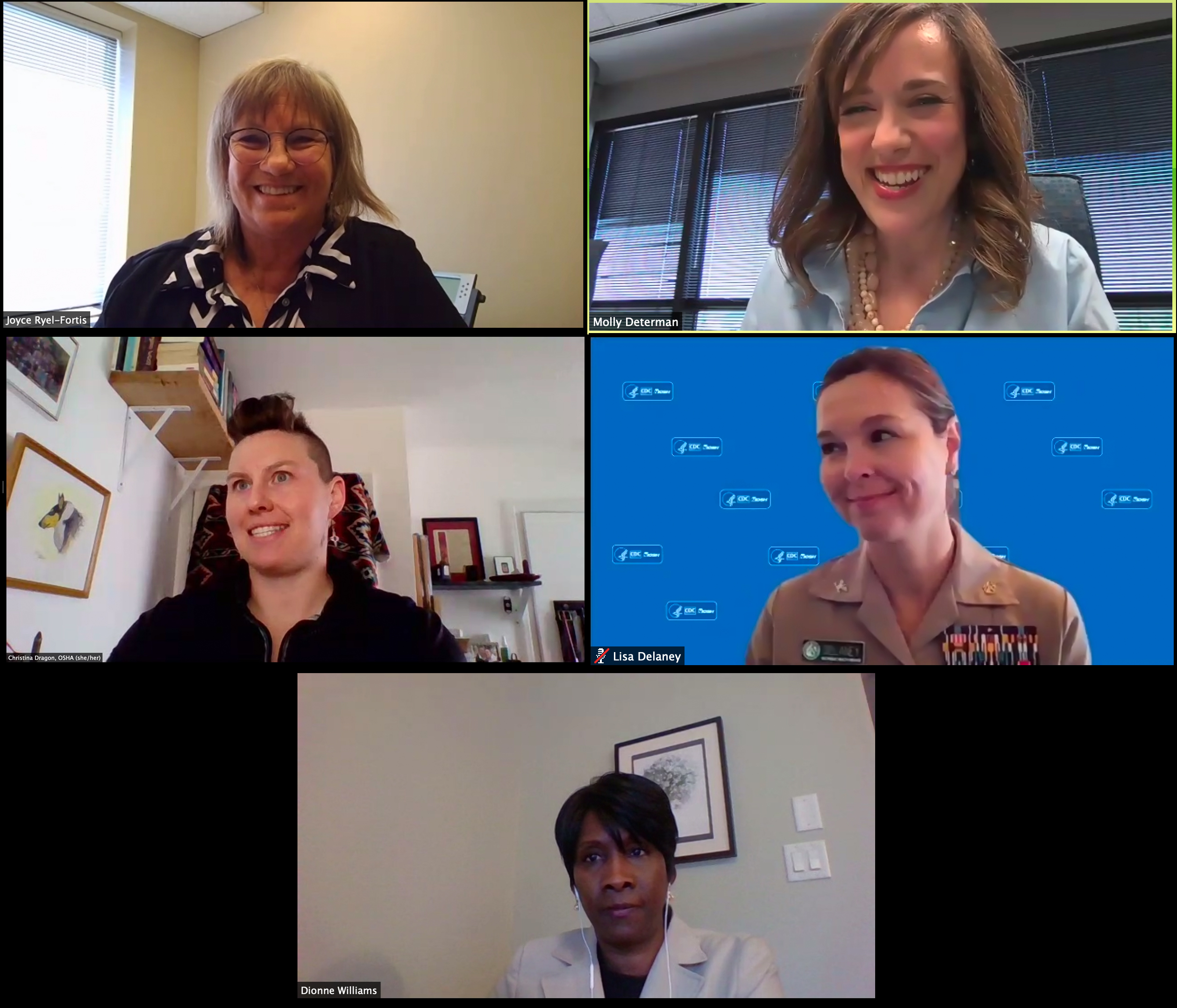 As the number of vaccination options increase and workers return to the office, industry members are searching for information about the vaccines and how to limit spread of the virus. Representatives from OSHA and CDC provided a detailed update during a Council webinar.
As the number of vaccination options increase and workers return to the office, industry members are searching for information about the vaccines and how to limit spread of the virus. Representatives from OSHA and CDC provided a detailed update during a Council webinar.
Moderated by Board Member Joyce Ryel, Vice President of HSEQ, Fortis Energy Services, Inc., and National STEPS President, and Council COO Molly Determan, participants heard from three experts.
Vaccine Update
Capt. Lisa Delaney from NIOSH/CDC shared that more than 150 million vaccine doses were administered throughout the U.S. by the end of March. Delaney provided details of the three vaccines approved by the FDA for emergency use, as well as the different technologies behind each.
“So far, 30% of Americans have received at least one dose of vaccine, And 17% have been fully vaccinated, which is good news. [Vaccine] activity is increasing across the nation so we’re in a good spot, and the work continues.”
Capt. Lisa Delaney, NIOSH/CDC
Delaney said that while scientists developed COVID-19 vaccinations quickly, the vaccines are safe because they’re based on years of research and use proven approaches. Researchers used existing networks to conduct COVID-19 vaccine trials and manufacturing began while clinical trials were still underway. Normally, manufacturing doesn’t begin until after trials are completed.
“All three of these vaccines (Pfizer-BioNTech, Moderna, and Johnson & Johnson/Janssen) were tested in tens of thousands of adults from diverse backgrounds, including older adults and communities of color, and all have been proven effective at preventing serious illness, hospitalization and death from COVID-19,” Delaney said. “However, it’s unknown how long protection from these vaccines might last. Clinical trials started only last fall, and we started vaccinating the public in December so we need a little more time.”
OSHA Resources
Delaney was followed by OSHA representatives Christina Dragon and Dr. Dionne Williams, who discussed guidance for mitigating the spread of COVID-19 in the workplace. They also detailed a temporary initiative called a National Emphasis Program (NEP), which focuses OSHA resources on employees in higher risk industries.
“The biggest takeaway from the updated guidance we issued in January is that implementing the COVID-19 Prevention Program is the most effective way to reduce the virus’ spread in the workplace. Employers should implement COVID-19 prevention programs specifically tailored to their worksite and workplace to stop the spread and protect workers. We will continue to update the guidance to reflect developments in science, and best practices and standards.”
Christina Dragon, OSHA
Through the NEP, OSHA will use targeted inspections, outreach and assist companies in compliance with guidance to eliminate workplace COVID-19 exposures. The NEP is designed to narrow OSHA’s focus to the establishments that put the largest number of workers at serious risk of contracting the coronavirus and protect workers from retaliation for complaining about unsafe or unhealthy conditions.
“One of the updates made to this plan is providing guidance beyond healthcare during site inspections. Our inspections are a combination of onsite and remote methods like collecting documentation from employers.”
Dr. Dionne Williams, OSHA
The federal OSHA program launched March 12. States planning to adopt the NEP in May must submit documentation of their policy to OSHA within 60 days of adoption.
“The National Emphasis Program is written as a one-year program,” Williams said. “With vaccinations and the guidance employers have at their disposal, our hope is that the pandemic will end before this one year is out.”
Williams and Dragon recommended visiting www.OSHA.gov/coronavirus for the latest information and resources on protecting workers from exposure to COVID-19.
For more information about the Council’s HSE programs, contact Sr. Director Programs & Events Peggy Helfert.




